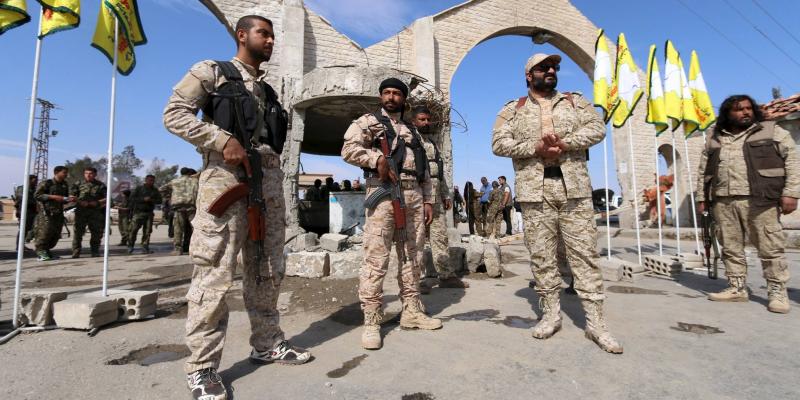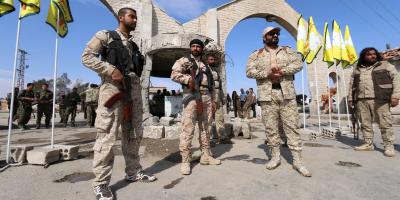The U.S.-backed Syrian Democratic Forces (SDF), led by Kurdish forces, sent reinforcements to Deir ez-Zor province in eastern Syria to quell widespread unrest from Arab tribes that raised their weapons following the arrest of an Arab leader. Witnesses and local sources reported that at least 40 fighters from both sides and 15 civilians have been killed in clashes that have been ongoing since Sunday across a series of towns within a strategic oil-producing belt at the heart of the Arab tribal region east of the Euphrates River, which is controlled by the SDF.
The fighting erupted on Sunday after the SDF arrested Ahmad al-Khabail, known as Abu Khawla, who headed the SDF-affiliated Deir ez-Zor military council. He was also a prominent Arab leader within the SDF, a coalition formed by the U.S. consisting of armed groups, with the Kurdish People's Protection Units (YPG) as its backbone.
In its first statement regarding the situation, the SDF announced that Abu Khawla was arrested and removed from his position for allegedly participating in various crimes, including drug smuggling and failing to address the threat posed by the Islamic State (ISIS) in the province. Residents reported that the SDF deployed new reinforcements and shelled several towns and villages, while armed Arab tribes burned tires and set ambushes for vehicles, attacking SDF positions.
Tribal fighters seized several checkpoints and attacked patrols in various towns, including Shuhail near the Al-Omar oil field, close to where U.S. forces are stationed. Tribal leaders and residents indicated that the escalating unrest following Abu Khawla's arrest revealed deep-seated anger towards the Kurdish-led force that dominates the predominantly Arab population in the oil-rich province.
Arab residents, suffering from deteriorating living conditions, complain that the Kurdish-led administration does not provide them with their share of the oil wealth. The YPG, which is supplied with arms by the U.S. Department of Defense, has long denied discrimination against Arabs and claims to seek to rectify the injustices faced by Kurds that deprived them of their culture before the Syrian conflict began in 2011. The YPG has been the main U.S. partner in Syria in driving ISIS out of Deir ez-Zor and defeating the Syrian army and its Russian supporters to control some of the largest oil fields in Syria.




